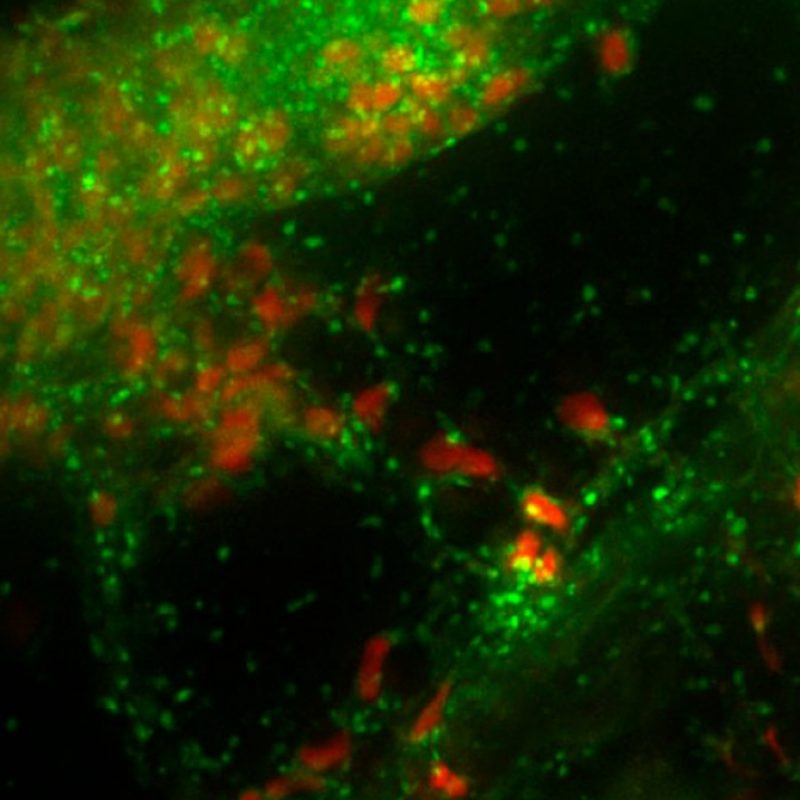Tag: Genomics and Cell Biology of Infection
-

Microbial Friends & Foes application portal opens Dec. 1!
More information about the program and a link to the application can be found HERE: https://cihmid.cornell.edu/…/mff-reu/ The application portal for the Microbial Friends & Foes Research Experience for Undergraduates will be open from Dec. 1 through Feb. 1, 2025. Please note that, due to the nature of our funding, the program can only accept U.S. […]
-

Kelley Gallagher
The Gallagher lab studies the regulation of steps in the bacterial life cycle through sporulation in the soil-dwelling genus Streptomyces. Students will delete and overexpress genes that are predicted to regulate development and examine resulting phenotypes to identify novel regulatory mechanisms of bacterial development. This[...] -

CIHMID Summer Symposium
REGISTER HERE: https://forms.gle/Svk6ToJ9vrNK4iRV7 CIHMID is pleased to announce our annual Summer Research Symposium to be held on Thursday July 11, 2024. The Symposium will be held in Stocking Hall on the Ithaca campus and will a full day of research presentations from members of our community. A call for submitted abstracts will be released […]
-

CIHMID/CCFI Postdoc Travel Grants
The Cornell Center for Immunology (CCFI) and Cornell Institute of Host-Microbe Interactions and Disease (CIHMID) are pleased to offer support to postdoctoral researchers who plan to attend scientific conferences during the 2022-2023 calendar years. CCFI and CIHMID will provide host labs up to $500 (total) to cover conference costs (registration, travel) for any postdoctoral researcher in […]
-

CIHMID/CCFI Joint Symposium
REGISTER HERE: cornell.ca1.qualtrics.com/jfe/form CIHMID, and the Cornell Center For Immunology (CCFI) will present a joint research symposium, open to the Cornell community. And despite the uncertainty surrounding Covid, and the Omicron variant specifically, CIHMID and CCFI are confident our joint symposium will be safe, and accessible for all attendees. As of right now our plan is to […]
-

Virus trafficking through midgut cells of insect hosts and vectors
Many viruses enter their insect hosts by the oral route and must cross the gut epithelium, a barrier that prevents access to the hemocoel and other tissues. Because the mechanisms of viral transit through insect gut cells are poorly understood, our project focuses on fundamental aspects of this important topic. Our current studies aim to […]
-

URE Program now accepting applications
Now accepting applications to CIHMID’s Undergraduate Research Experience (URE) Program for current Cornell undergrads. Find more info here. Applications are due Nov 8, 2024.
-

Vector Aedes aegypti, from functional genetics to ecological analyses
Mosquitoes cause 400,000 malaria deaths and transmit viruses to hundreds of millions. The vectorial capacity of mosquitoes depends on their ability to survive infection. However, it remains unclear what key mechanisms underlie the mosquito tolerance and resistance to infection with multiple microbes (bacteria, fungi, microbiota, viruses). We are particularly interested in approaches ranging from lab controlled […]
-

Evolution of Symbiosis
The long-term goals served by this project are mechanistic understanding of plant disease and development of broadly effective and durable means of control. The project seeks to structurally and functionally characterize a pathogen-activated host gene that plays a critical role in disease in a major crop species, and to ascertain the potential of strategies to […]
-

Evolution of Symbiosis
The Moeller Lab studies the evolution of symbiosis between animals and microorganisms. Our current work focuses on vertebrates’ co-evolutionary histories with bacteria through a combination of -omics approaches, gnotobiotic and microbiology experiments, and natural history. We are recruiting highly motivated and independent postdoctoral candidates with training in genomics, population genetics, microbiology, immunology, or related fields. Candidates interested in the genetic […]
